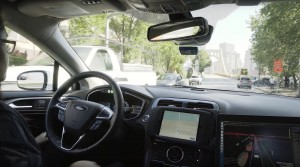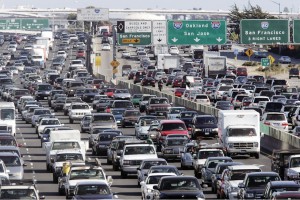A new study suggests that in some major metropolitan area, among them Los Angeles, Chicago and Detroit, it’s cheaper to drive to work using Uber than it is to drive a personal automobile.
Aside from the cost of a trip on Uber or Uber Pool, which varies from region to region, insurance and parking are the key factors in driving up the cost of commuting driving 10.4 miles-one way to work, according to the study from NerdWallet.
“NerdWallet examined data from a variety of sources to compare the cost of commuting each week via ridesharing service Uber vs. a personal vehicle in the 20 largest U.S. metropolitan areas by population, to see if owning a vehicle for work is cost-effective.
“Although this analysis examined only two commute options, in some metro areas commuters could slash their costs by riding a bus or train, so it can pay to look at the full range of choices,” a summary of the study noted.
The study said using typical commute distances for each metro area. NerdWallet gathered Uber rates for the morning and afternoon rush hours, choosing the carpool UberPool where available or UberX, the private car option, and compared that cost with commuting via personal vehicle and its costs.

Driving to work using Uber or Lyft may be cheaper, depending upon where you live, than using your own car.
(Uber works to fight human trafficking. Click Here for the story.)
The study concluded that makes financial sense to use Uber to get to and from work each week in eight of the 20 metropolitan areas, Chicago, Detroit, Los Angeles, Miami and Fort Lauderdale, New York City/Newark, San Diego, San Francisco/Oakland, and Washington, DC.
In only one of the eight metros, the Detroit area, the less-expensive UberPool wasn’t available as a commuting option when rate estimates were gathered Feb. 13–17, 2017.
Commuters in the eight metropolitan areas could save anywhere from $6 to $135 per week by using Uber or presumably a rival car sharing service with comparable or competitive rates such as Lyft. The biggest savings were in New York, San Francisco and Chicago, according to the study.
(Click Here for more about NYC instituting a congestion charge to drive in the city.)
Commuting by personal vehicles was less expensive in places such as Phoenix, Dallas and St. Louis, while driving yourself also was also cheaper in Atlanta, Boston, Denver, Houston, Minneapolis, Philadelphia, Seattle, Wash, and Tampa/St. Petersburg.
While the study isn’t by NerdWallet is not definitive, it certainly adds fuel the debate over whether it makes economic sense for everyone to own private automobile — even for work.
The debate has taken on a new intensity during the past year as a new generation of younger consumers become habituated to using new form of mobility such as car sharing that lessen the necessity of vehicle ownership.
(To see more about the costs of traffic congestion, Click Here.)
It also supports a more practical approach to transportation, which looks at the actual cost of miles traveled over the often sentimental and romanticized argument for using a vehicle long used by carmakers the world over.

